-
- Soyanggang Dam
-
My Own Doctor, a Visiting Free Medical Service Bus,
- Providing preventive healthcare through home visits for more than 100 local seniors (aged 65 and older) and individuals with disabilities
-
- Chungju Dam
-
jangja Wetland Canoe Experience Center
- Fostering the water leisure industry as a specialized regional industry and revitalizing the local economy through a canoe tour program operated between Jangja Wetland and Mokgye Pine Forest Camping Site (3.3 km).
- Improving housing conditions for elderly people living alone in outlying areas and training local organization and storage experts.
-
- Bohyeonsan Dam
-
Video Memoir Production Project
- Strengthening intergenerational and community bonds by producing “video memoirs” that document the life journeys and dam-related memories of local senior citizens.
-
- Juam Dam
-
Bangwoori Laundromat
- Providing a door-to-door, one-stop welfare service for vulnerable groups—covering the entire process from laundry collection, repair, washing, drying, and packaging to delivery.
- Providing balanced diet and safe food for the elderly while also improving the quality of life for senior citizens living alone in rural areas.
-
- Daegok Dam
-
Bangwoori Orchestra
- Providing after-school learning programs (music programs) and musical instruments for children at underprivileged community child centers.
-
- Yongdam Dam
-
Zero-Carbon Eco-Village
- Establishing renewable energy infrastructure and promoting eco-friendly farming practices to support low-carbon transition at the village level.
- Revitalizing the local economy and attracting related populations through the development of eco-tourism infrastructure such as local ecological trails.
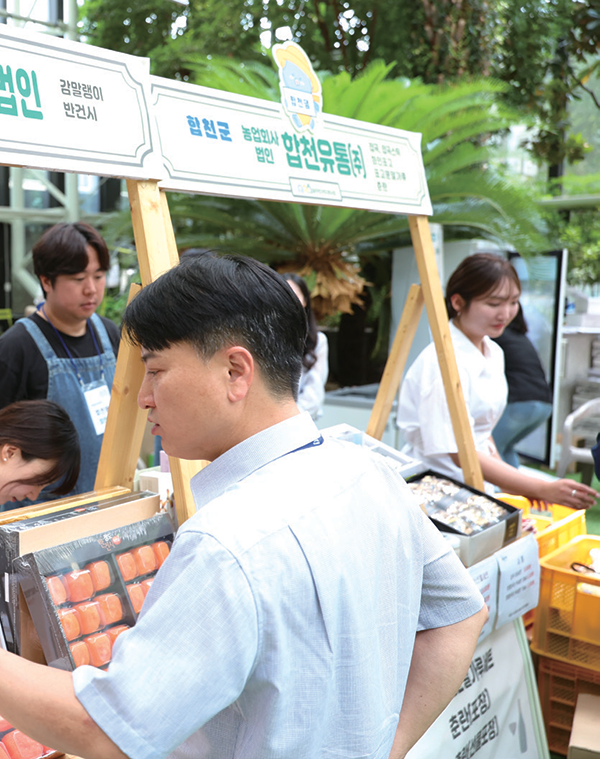
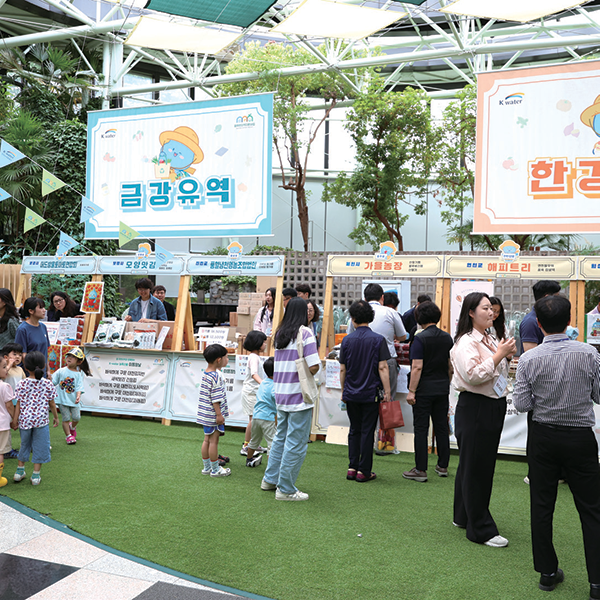
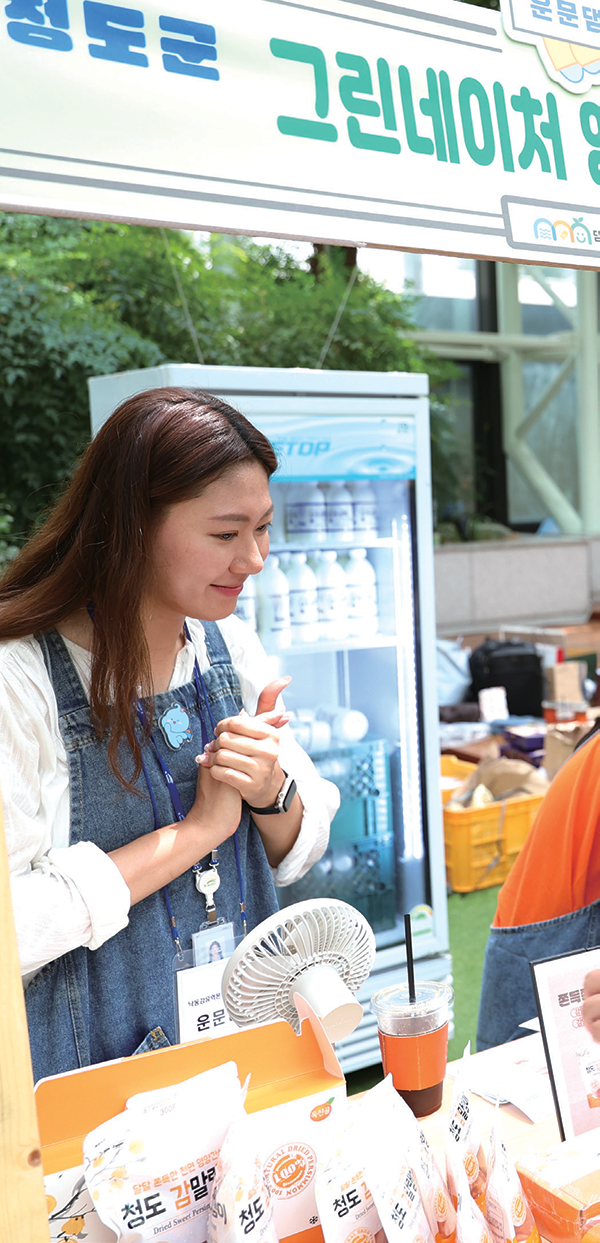
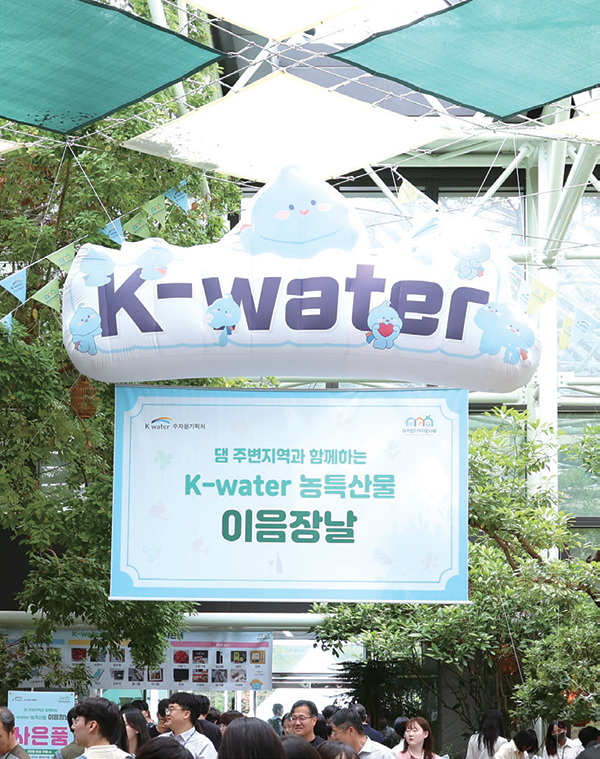
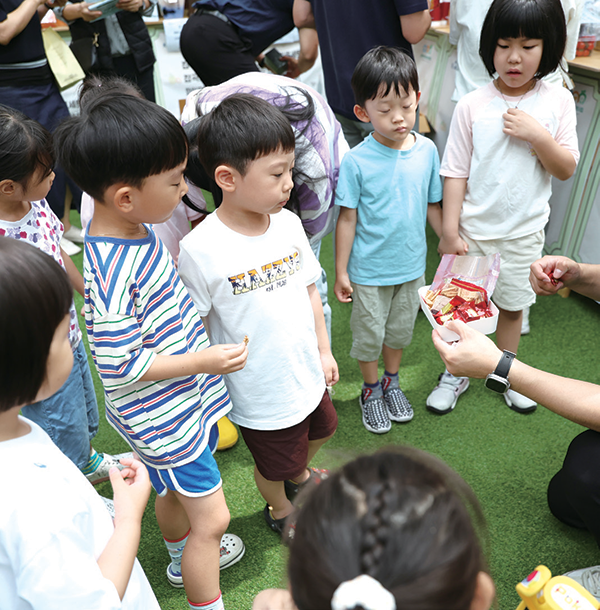
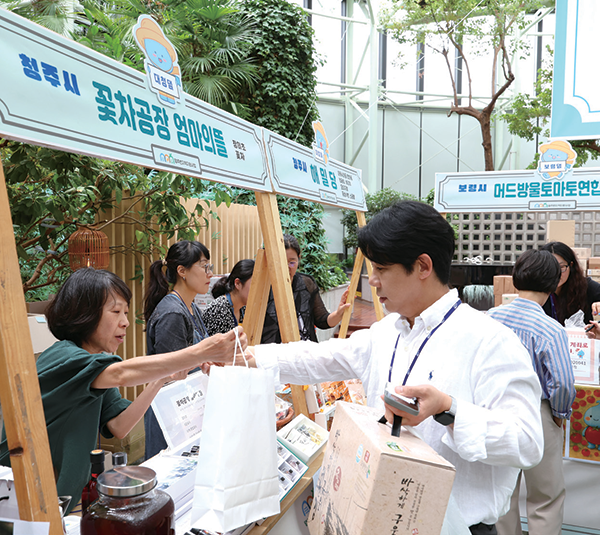
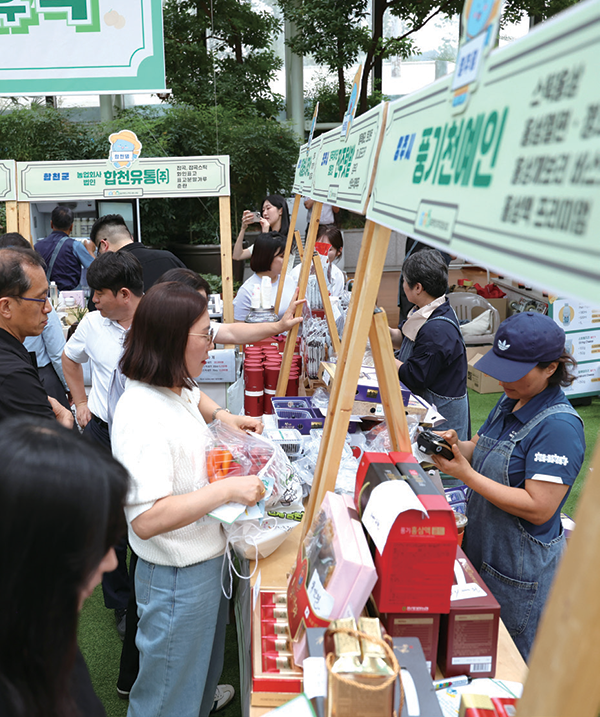
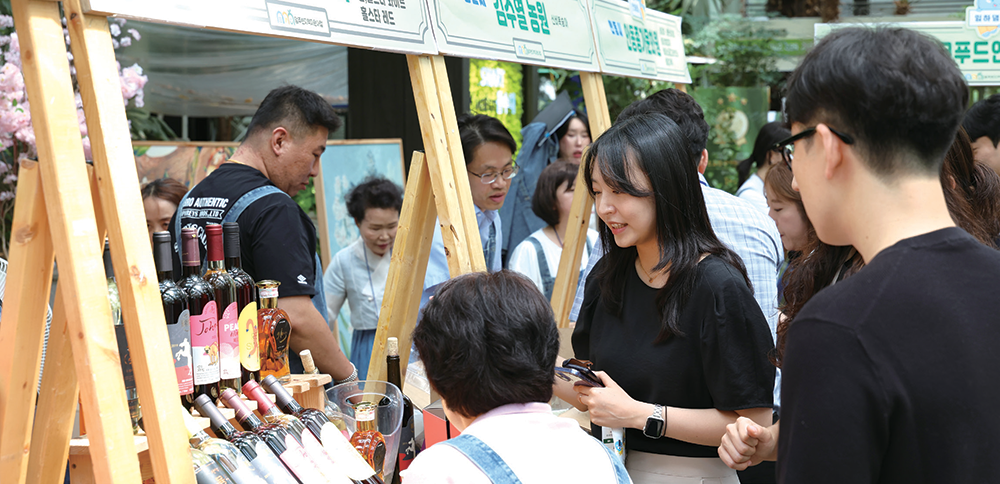
-
- "Ieum Market Day": Connecting Local Farmers and K-water
- On June 17, the Multipurpose Hall at K-water’s headquarters was bustling with employees. “K-water Ieum (Link) Market Day”—a direct-market fair for local farms near dams—was launched in September 2023 and designed to expand sales channels for local farmers and invigorate the regional economy. It has been held semi-annually at the headquarters since then, and it is gradually expanding its scope to four river basin headquarters (Hangang, Geumgang, Yeongsangang/Seomjingang, and Nakdonggang). Starting with the Nakdonggang River Basin Headquarters in January, the event has also been held at the Hangang and Geumgang River Basin Headquarters, totaling four events so far this year alone. This latest event saw the participation of 28 farms affiliated with 21 local governments including Yanggu-gun in Gangwon-do, and Chungju-si in Chungcheongbuk-do located near 19 of the 37 dams nationwide, including Soyanggang and Daecheong dams. About 90 different high-quality agricultural and specialty products were available at reasonable prices, earning raves among employees. In addition to individual purchases by employees, K-water bought approximately KRW 1 million worth of goods per farm and donated them to senior welfare centers near dams across the country; thus reinforcing its commitment to regional coexistence.
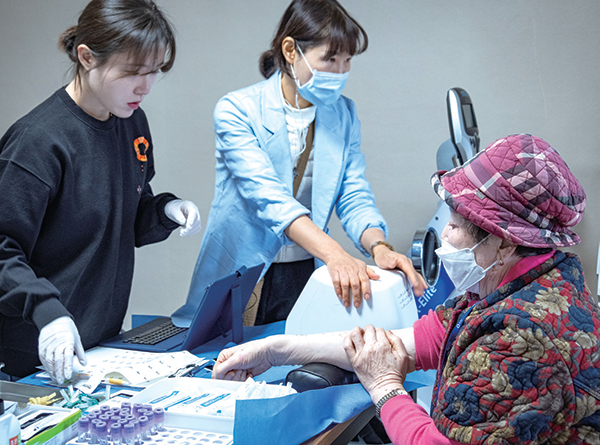
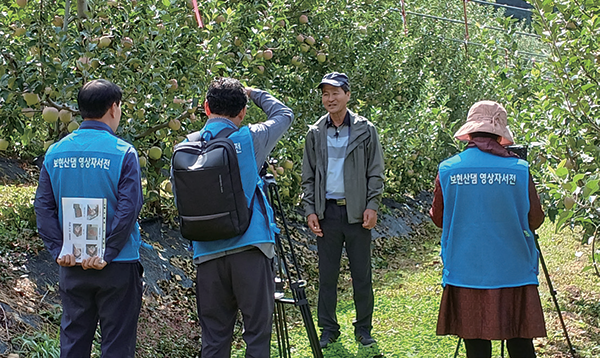
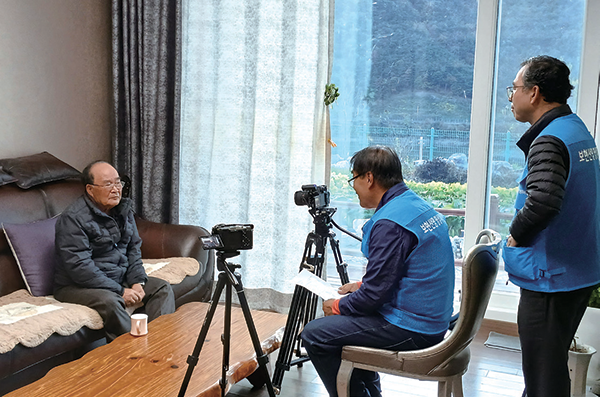
-
- “Dam-Surrounding Area Support Project” for Growing Together with the Region
-
The Dam Surrounding Area Support Project is a program that contributes a portion of the annual revenue from water use fees and power sales to increase income for local residents and improve their welfare; thus promoting the revitalization of local communities near dams. Various projects are carried out, including income-increasing initiatives such as supporting joint farming facilities, living infrastructure development projects like the construction of village community centers, resident welfare support such as medical expense subsidy for low-income households, educational support including scholarship grants and educational field trips, and support for regional events.
Customized projects tailored to the characteristics of each region are newly developed and implemented as well. A major example is the “K-water Free Medical Service Bus” launched last May. It is a bus-based mobile medical service for residents of Yeongcheon, Cheongsong, and Gunwi—the three cities and counties surrounding Bohyeonsan Dam, Seongdeok Dam, and Gunwi Dam, respectively. The service provides basic medical care including blood tests, heart examinations, exercise and lifestyle counseling, and medication management, with residents requiring detailed treatment referred to public health centers or specialized hospitals. Under this program, universal medical welfare services were made available to about 6,000 residents in 3 local governments last year including elderly individuals with mobility difficulties and residents of mountainous areas lacking medical infrastructure.
The “Bangwoori Meal Truck” is also one of the new projects launched last year. With volunteers from local women’s associations and others participating, this free meal vehicle service is aimed at helping isolated seniors living alone and low-income families near Juam Dam by providing balanced meals and safe food; thus supporting a healthy daily life for marginalized groups.
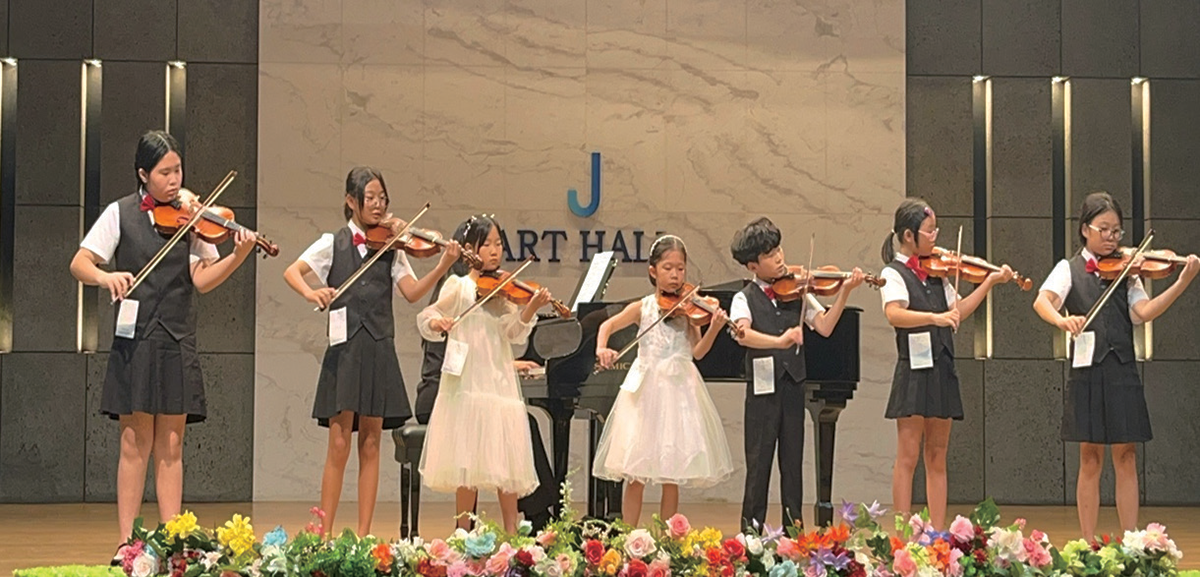
-
- Embracing Dams, Adding Value to Communities
- K-water is going one step beyond traditional support projects for dam-adjacent areas by launching the "Dam Local Branding Project," which combines high-quality waterfront spaces with the unique culture of each region to create new business opportunities. This project supports the establishment of master plans and master planners for initiatives that enhance regional tourism infrastructure, develop themed villages, and open local specialty markets. The goal is to empower local governments, residents, and private companies to work together to revitalize communities and generate sustainable income. Through these efforts, K-water aims to boost vitality and competitiveness in dam-surrounding areas and help transform them into attractive, thriving regions. A public call for proposals was held from March to May this year, and three projects were selected last month. The development of their master plans has been underway since this month. The phased implementation of the project is expected to begin in 2027. K-water will continue to go beyond simply operating dams and promote a model of mutual growth and cooperation that fosters the value of the surrounding regions and increases the growth potential of local communities.
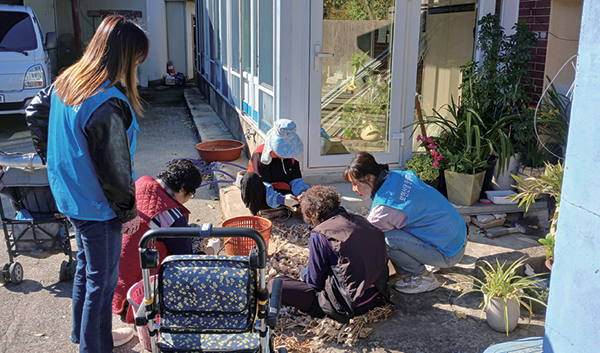
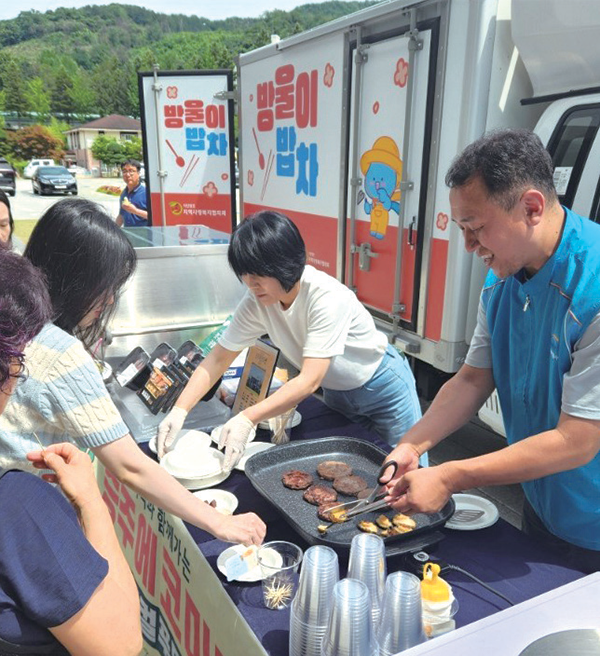

 View previous
View previous 이전호 보기
이전호 보기